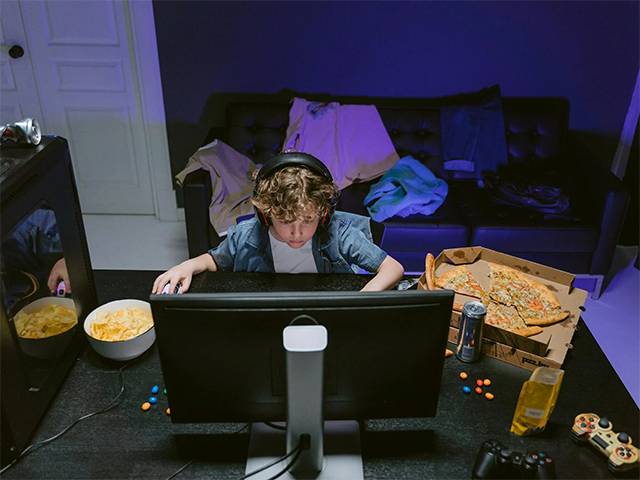How to help your kids benefit from online gaming

The impact of gaming is a top concern for many parents but new research from eSafety shows there are significant benefits alongside the risks, and active family involvement can make it safer.
Launched for Safer Internet Day, the research delved into the gaming experiences of more than 2,000 8-17 year olds, with most (89 per cent) reporting they had gamed in the last year and two-thirds (66 per cent) of those spending more than six hours per week gaming.
"Online games are incredibly popular with children, so it's understandable parents and carers are concerned about possible harms - especially given it's a world beyond many adults' comprehension," eSafety Commissioner Julie Inman Grant said.
"Our research highlighted the common paradox of the online world: there are some serious risks we need to know about but there are also some incredible benefits – and this was clearly articulated by young people themselves.
"Online gaming makes young people happy and provides relief from tough times. Over 40 per cent said gaming benefited their emotional well-being; almost 60 per cent said it improved their social connection; and almost 80 per cent said gaming helped them develop skills or learn something new.
"On the flip side, there were some concerning reports of harm. Over 40 per cent young gamers had negative experiences, which included just over 30 per cent who experienced bullying behaviours[i], and over 30 per cent of teen gamers were exposed to potentially harmful ideas, ranging from racism to self-harm to sexism.
"But in surfacing these harms, we also surfaced a tactic parents and carers can use to help make things safer: be interested and curious in the online games your child is playing. Young people who had experienced online abuse were more likely to have opened up about it if their parent had engaged with them previously about their gaming.
"We know parents talk about their children's online gaming experiences with each other. This Safer Internet Day, let's all go a step further and start having those same conversations with our children. Even better, let's co-view and co-play online games with our kids and be much more engaged in their online lives. Almost two in five of all young gamers told us they would like their parents and carers to play online games with them. This jumps to just over half of pre-teen gamers."
The research also indicated that a minority of children and young people had been exposed to other potentially high-impact harms. Seven per cent of all young gamers reported other players doing or saying something that made them feel uncomfortable, such as being asked personal questions or to keep secrets – behaviours that could be a pre-cursor to grooming. On top of that, three per cent of gamers aged between eight and 12 received or were asked for nude images or sexual information while gaming.
"These findings are another reminder that grooming is a risk in online environments. That's why it's crucial to support your child not only to implement privacy settings but help them understand why private information should not be shared. Where social interaction is enabled in online gaming features, set parental controls to manage who they are chatting to online and regularly remind them we may not always know who our online friends are. Having regular conversations about grooming and how to recognise it is important too, and you can access our parent resources at eSafety.gov.au to start those fundamental conversations."
To help parents and carers get involved in their child's online gaming lives, eSafety has launched new resources as part of Safer Internet Day: a day when the world comes together with a shared vision of making online experiences better for everyone.
"On Safer Internet Day, we're calling on Australians to 'Connect, Reflect, Protect'. We want parents and carers to know how to help their kids connect safely online, to encourage them to reflect on how some actions can impact their safety, and to protect themselves by staying across the latest online safety advice, including game-specific advice, at eSafety.gov.au," Ms Inman Grant said.
Importantly, the research also demonstrated that young gamers were proactive about their safety. Almost all (95 per cent) young gamers took steps to try to stay safer online, including 78 per cent who restricted who they played or talked to and 53 per cent who didn't share personal information while playing.
Ms Inman Grant said parents should not only be buoyed by young gamers approach to safety but by their open invitation to join in and play, which is also a fantastic opportunity to role-model safe online behaviours.
"Playing online games with your children offers an incredible joint learning experience. For us parents, we can learn from our child's mastery and games strategy. For our children, they can benefit from our life experience to better navigate their online lives with safety and respect for others," she said.
Image credit pexels
MORE



